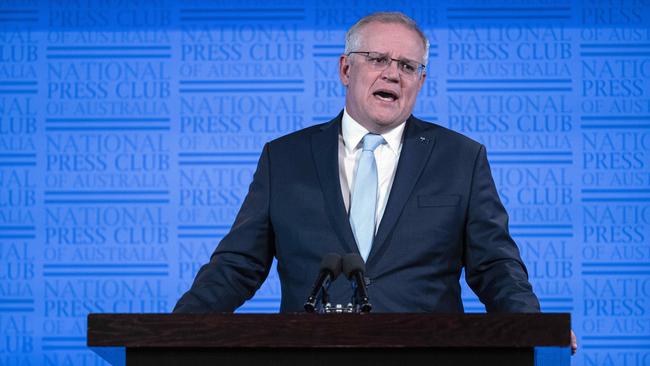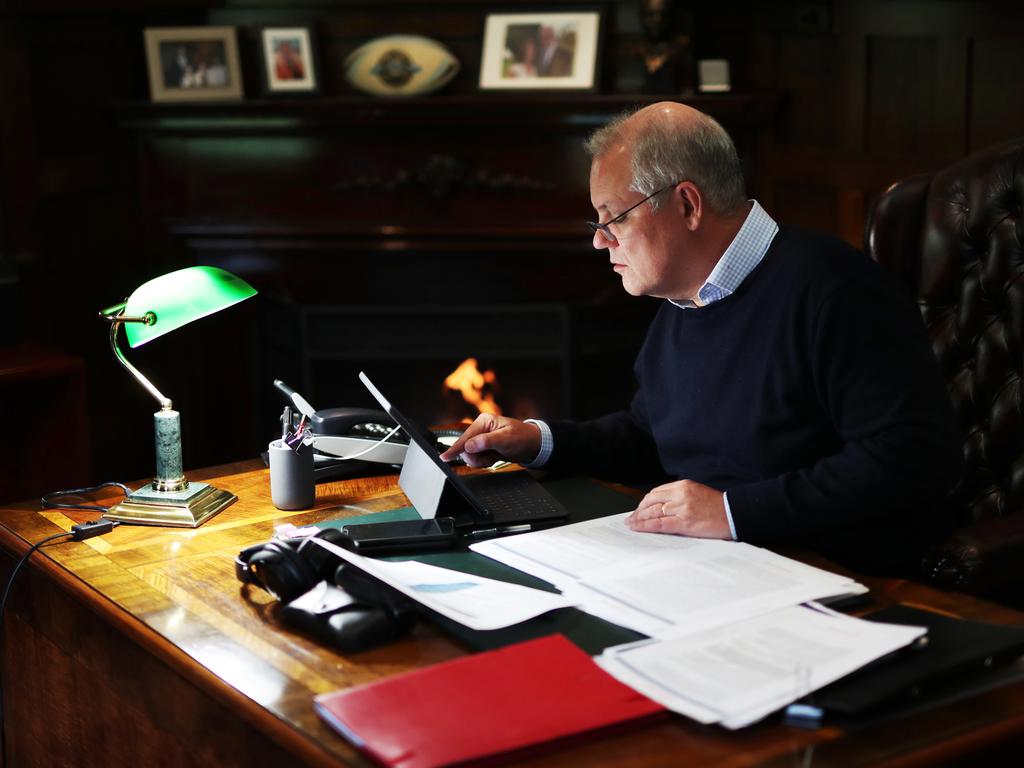Manufacturing strategy to help business-led recovery

As Mr Morrison made clear at the National Press Club on Thursday, this is not a nostalgic return to the protected, highly regulated Australian economy of the past that manufactured Holden cars, textiles, clothing and footwear. While not picking winners, the plan exercises discernment in supporting particular industries that are crucial to our supply chain in an increasingly polarised global order or that will leverage Australia’s comparative advantages and expertise. They have been well chosen: resources technology and critical minerals processing; food and beverage manufacturing; medical products; clean energy and recycling; defence industries; and the space industry.
In essence, the package is about supporting manufacturing by getting the fundamental economic settings right to foster productivity. The priorities need to be affordable and reliable energy, lower taxes, industrial relations reform, training and skills development, cutting red tape and infrastructure investment. Too often in the past, as Mr Morrison says, industry policy has ignored foundational elements in the vain hope that isolated programs and subsidies could make up for the broader deficiencies.
This pandemic has killed the faux utopia of Davos and returned the world to the brutal realism of Westphalian states engaging in trade with allies whose strategic interests mirror their own. The vulnerability of Australia’s supply chain, especially in the production and distribution of crucial medical equipment and pharmaceuticals, appears to have made an indelible impression on Mr Morrison, who has focused on sovereign autonomy in “areas of national interest”. His willingness to engage directly with business leaders to examine which areas can match public investment with their own capital is sensible. Too often in recent months, business has been ignored by state governments as arbitrary emergency measures have forced closures or imposed crippling limits on customers and trade. The emphasis on research and development and the acquisition of new skills among our workforce are vital. With the defective business model of many universities exposed by the absence of foreign students, new opportunities in the workforce may encourage young Australians to venture into areas that do not require second-rate degrees at exorbitant fees.
Mr Morrison, correctly, has linked economic recovery to Australia’s abundant natural energy resources. Gas accounts for up to 40 per cent of many industries’ cost structures in manufacturing. Combined with higher electricity costs, he said on Thursday, many firms were living “turnaround to turnaround’’, making existential decisions rather than decisions they’d prefer to be making about technology and productivity improvements to remain competitive. As Mr Morrison said: “This needs to change.” Neither could the nation afford “business as usual” in industrial relations as the Maritime Union of Australia dispute at Port Botany had demonstrated.
The June quarter contraction of 7 per cent hit Australia hard, but we are better placed than much of the world. In the same quarter, Britain suffered a 20 per cent contraction, with falls of more than 10 per cent in Canada, New Zealand, Italy and France. Our effective unemployment rate has fallen from 14.9 per cent at the height of the crisis to 9.3 per cent. It is to Australians’ advantage that corporate leaders such as the Business Council of Australia are on side with the government’s aim of a business-led recovery. On Thursday, BHP announced an $800m package to fund 3500 new apprenticeships and trainees. Earlier in the COVID crisis, Mr Morrison noted that Australians could not hide under the bedcovers indefinitely. We’re now up and running.
Good health policy at federal and state level, however, remains vital to avoiding a second wave of coronavirus or a third wave in Victoria. Australia, as Mr Morrison says, is one of very few nations — along with Norway, Taiwan, South Korea and Finland — that has succeeded in combining the dual health and economic objectives. But Australia is in the same global economy and environment as everyone else. Last week’s surge in new cases in Europe to higher levels than those of the first wave is forcing new restrictions. A repeat of that situation here would derail recovery, regardless of industry and economic policy.






Scott Morrison has provided a worthwhile plan to Australia’s beleaguered business community reeling in the wake of the COVID-19 pandemic. The $1.5bn package to rebuild manufacturing bears the hallmarks of the Prime Minister’s approach to policy. Pragmatism trumps purity. It is a strategy Sir Robert Menzies would have been comfortable with in the post-war years. It is also suitable for these times, after the virus has wreaked havoc on an economy and society that had become accustomed to virtually uninterrupted growth and prosperity for more than a generation. Any aspiration to deliver a budget surplus has long been abandoned. But there is no alternative if the nation is to emerge from this catastrophe with its social fabric and economy intact. After the commonwealth’s injection of massive stimulus into the economy, now is the time to shift gears.